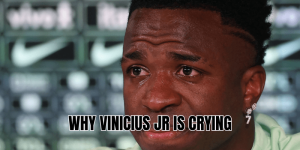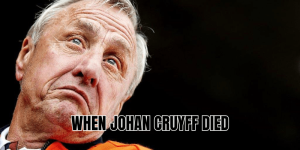In this article, BraeckBall will explore how Johan Cruyff died, unraveling what is known about the illness that claimed one of football’s greatest icons. Many fans ask about the cause, progression, and final moments of his life. Here’s a clear and detailed look at Cruyff’s death, his illness, and the context.
Who Was Johan Cruyff
Before examining how Johan Cruyff died, it helps to remember who he was:
- Johan Cruyff (born Hendrik Johannes Cruijff on 25 April 1947 in Amsterdam) was a legendary Dutch player, coach, and football thinker.
- He won the Ballon d’Or three times (1971, 1973, 1974), starred for Ajax, Barcelona, and the Dutch national team, and later revolutionised the game as a manager.
- His style—Total Football—continues to influence players, teams, and tactics around the world.
What Illness Did He Have
The direct cause behind how Johan Cruyff died was lung cancer. Here are the keyl facts:
- In October 2015, Cruyff was diagnosed with lung cancer.
- He had been a heavy smoker for many years before quitting after heart surgery in 1991.
- The cancer later metastasized (spread) to his brain. Near his death, he began losing abilities such as speech, and movement on his left side.
Timeline: From Diagnosis to Passing
Here’s a timeline to understand how Johan Cruyff died —, to his final moments:
- 1991
- Underwent emergency bypass heart surgery. Afterwards, he stopped smoking.
- October 2015
- Publicly revealed his lung cancer diagnosis.
- Late 2015–Early 2016
- He underwent treatment including chemotherapy, and for some time was reported to be responding well. He gave interviews and made public appearances occasionally.
- March 2016
- The cancer had spread to his brain. Shortly before his death he suffered loss of speech and movement (left side).
24 March 2016
- Johan Cruyff died peacefully in Barcelona, surrounded by his family. He was 68 years old.
Factors That Contributed
While lung cancer was the immediate cause of how Johan Cruyff died, several background factors played a role:
- Smoking history: Cruyff was a heavy smoker for much of his life. This is strongly linked to lung cancer risk.
- Heart problems: His heart surgery in 1991 shows he had cardiovascular risk and health issues earlier, though not directly the cause of the cancer.
- Age: At 68, medical resistance is generally weaker, and cancer treatment becomes more complex.
The Final Moments
Here’s what is known about the day he passed:
- Cruyff spent his last hours in a clinic in Barcelona, with his family around him.
- He died peacefully after a “hard-fought battle with cancer.”
Legacy After Death
The influence of how Johan Cruyff died went beyond just the sadness of loss:
- Football clubs, fans, former players, and national teams paid tribute worldwide. Moments of silence, special tributes, and memorials took place.
- His club Barcelona, Ajax, the Netherlands, and others have honored his memory, naming stadiums, holding memorial events, and celebrating his philosophies.
Some Misconceptions Clarified
Because of the nature of public memory, certain details are sometimes misunderstood. Here are clarifications:
- It’s sometimes stated that Cruyff had cancer for many years; officially, his diagnosis came only in late 2015. Earlier health issues (heart surgery, etc.) were separate.
- Though the lung cancer was primary, the brain involvement significantly impacted his final condition.
Why It Still Resonates
Understanding how Johan Cruyff died matters because:
- He was not just a great player but a global symbol of innovation in football tactics and culture. Losing him meant more than losing a star—it marked the end of an era.
- His battle with lung cancer, especially given his smoking history, reminds us of the real human vulnerabilities behind even the greatest legends.
- The way he handled illness—with dignity, in public view, and with family around—has inspired many.
Conclusion
Today, we’ve walked through how Johan Cruyff died—, his ideas—Total Football, the importance of creativity, youth development, freedom on the pitch—live on.
If you want to dive deeper, BraeckBall can share more about his football philosophy, his greatest matches, and how his legacy shapes modern stars. Let us know what part of Cruyff’s life you’d like to explore next.


